




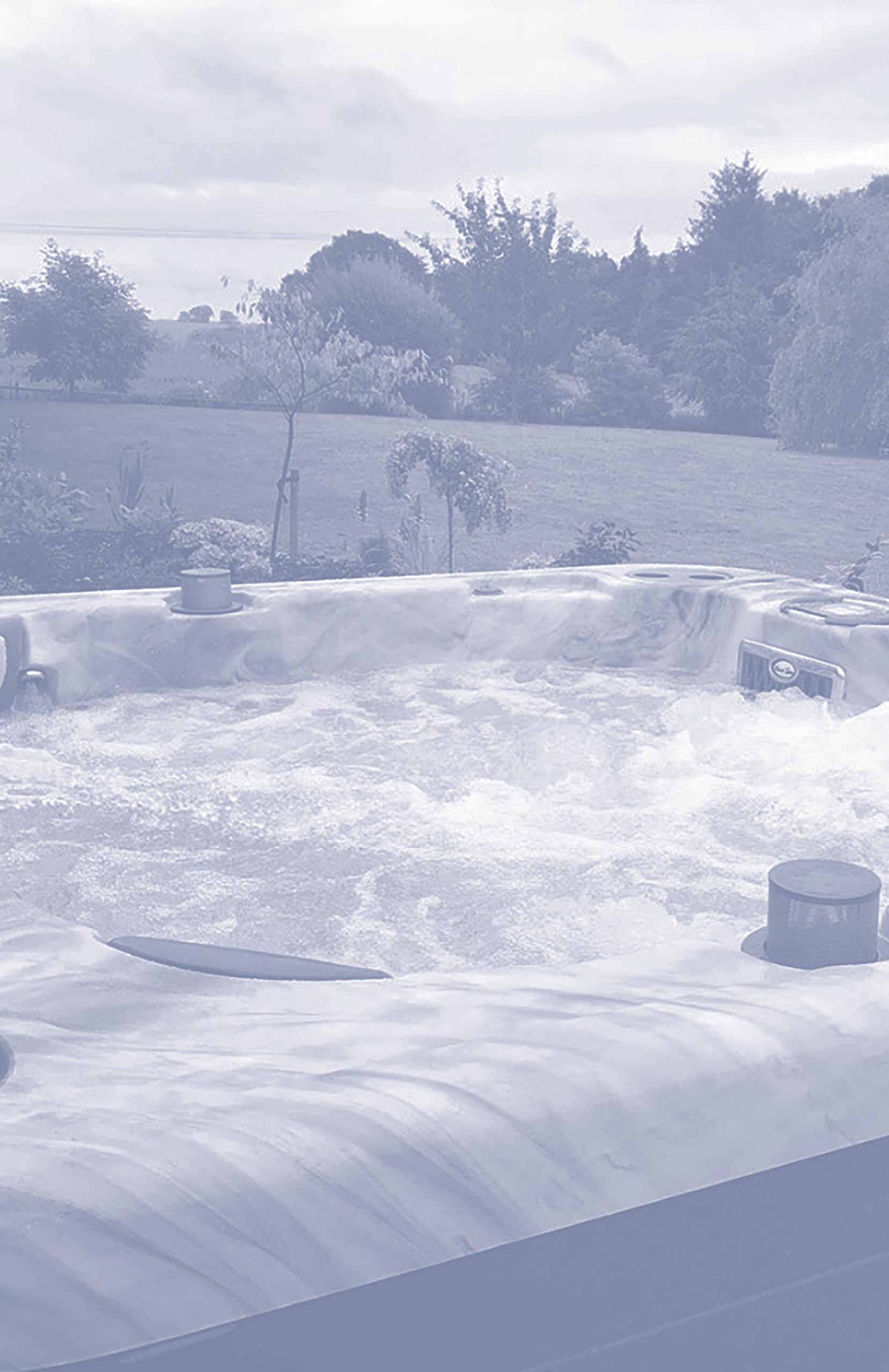
This booklet has been prepared by The Pool & Hot Tub Alliance (PHTA) with assistance from the Canadian Hot Tub Council to inform you about general safe use, operation, and maintenance of your spa or hot tub.
It represents the current knowledge of the industry but is not intended to cover all aspects of spa and hot tub design, operation, installation, and maintenance. Refer to specific manufacturers’ instructions for more details on product installation, use, maintenance, and safety and keep them along with this booklet for ready use and reference. Be sure to pass them along to future owners or renters.
Spas and hot tubs are intended to provide many hours of enjoyment. Just as with any product, you and only you can determine if your spa or hot tub is used sensibly. The key to safe use of a product is a sensible and informed consumer.
Congratulations on being a spa or hot tub owner. Your spa or hot tub can give you, your family, and guests many years of fun and relaxation.
This booklet contains important safety information you should know about operating and maintaining your spa or hot tub. It will help you understand some of the causes of possible spa or hot tub-related accidents and how to prevent them. It is your responsibility to be sure that you, your family, and guests use the spa or hot tub sensibly.
In addition to this booklet, it is important to read and keep all of the operating instructions, owner’s manuals, and warranties for your spa or hot tub and its equipment. Clearly understand the specifics of safe operation and proper maintenance, which these publications provide. Keep these materials on file for your own reference, review them seasonally, and pass them along to future owners or renters.
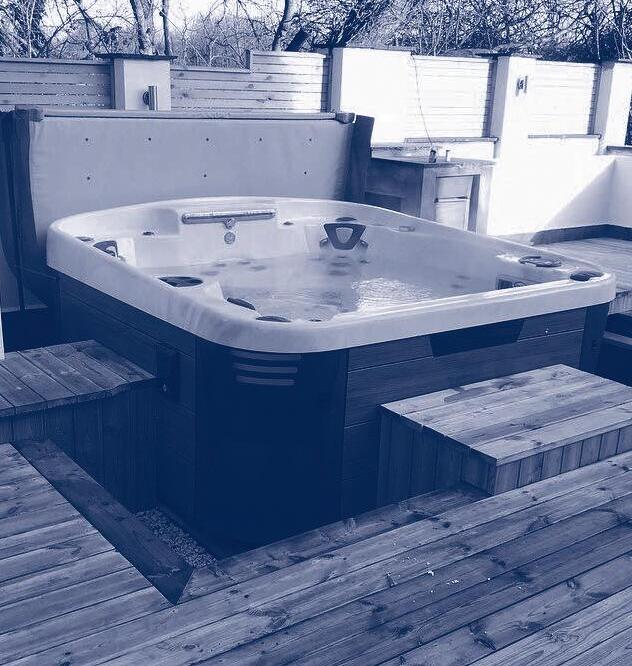
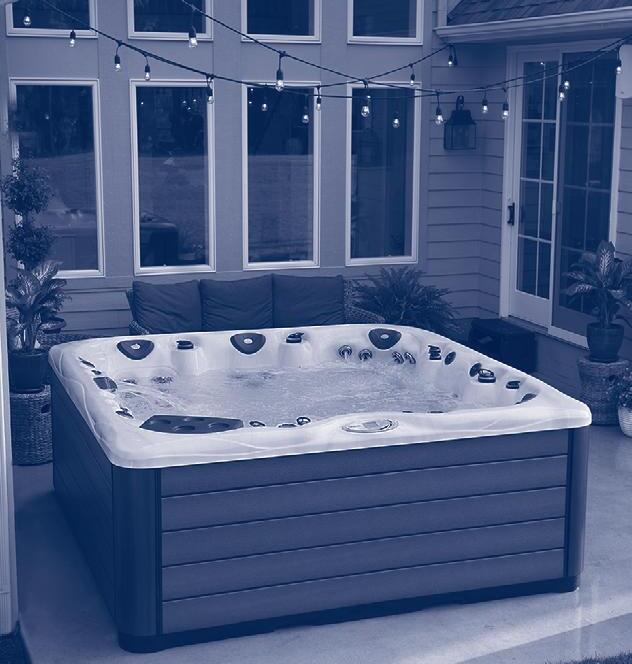
Informed consumers are concerned about safety because serious injuries and even death can result from unsafe use of spas and hot tubs and associated products. Here are some examples:
DROWNING – According to the U.S. Consumer Product Safety Commission (CPSC) at least 240 children under 5 years old drown in pools, spas, and hot tubs. Most of the cases involve residential pools. Drowning remains the second leading cause of injuryrelated death among children ages 1 to 14 in all bodies of water nationwide in the U.S.
ELEVATED BODY TEMPERATURE –
Soaking for too long at higher water temperatures can elevate body temperature and the temperature of internal organs beyond safe limits. Pregnant women, infants, and children are especially sensitive to high temperatures, as are many people with certain medical conditions such as diabetes, heart conditions, and those taking certain prescription medicines.
ENTRAPMENT – Suction from noncomplying outlet/cover grates and drains can cause entrapment of hair or body parts and drowning. If the drain cover is missing,
broken, not securely fastened, or does not comply with the latest edition of ANSI/APSP/ICC-16 2017 Standard for Suction Outlet Fitting Assemblies (SOFA) for Use in Pools, Spas and Hot Tubs, shut down the spa or hot tub until the drain cover is replaced. Consult a spa or hot tub professional.
BURNS/FIRES – Chemicals needed for clean, sanitized water are potentially harmful when stored or used improperly. If mixed with other chemicals or elements, explosions and fire can occur.
ELECTRICAL SHOCK/ELECTROCUTION – Water is an excellent conductor of electricity. Electrical shock or electrocution can occur in a spa or hot tub if live electrical current (including current from a telephone) comes into contact with the water.
CUTS, CONTUSIONS, AND ABRASIONS
– These injuries can occur in the spa or hot tub environment as a result of horseplay, improper use of equipment or failure to follow manufacturers’ instructions or warnings. Serious trauma or disabling injuries also may occur.
You can help ensure that your family and guests are not victims of any of these unfortunate accidents.
Drowning prevention information is not for “someone else.” It is for you. Because only by increased awareness and effort can we reduce such tragedies. Drowning is one of the leading causes of accidental death for infants and children five and under.
In addition to the Pool & Hot Tub Alliance, organizations such as the American Red Cross, the National Drowning Prevention alliance, Think First, the Centers for Disease Control, Young Men’s Christian Association (YMCA) and the National Rehabilitation Hospital, recognize that constant adult supervision is the primary element in an integrated approach to drowning prevention.
While supervision is the key to accomplishing the objective of reducing the number of submersion incidents, it is well known that, at times, children may do the unexpected, catching their supervisors off guard. Because being caught off guard does occur and there may be a lapse in supervision, The Pool & Hot Tub Alliance (PHTA) has developed a Model Barrier Code, which has been approved by the American National Standards Institute (ANSI) as ANSI/APSP/ICC-8 2005 (R2013) Model Barrier Code for Residential Swimming Pools, Spas and Hot Tubs. This Model Barrier Code establishes
layers of protection to complement the requirement for constant, competent adult supervision of young children around aquatic environments. Remember, these layers of protection may only delay and may not prevent a toddler from entering the spa or hot tub area. Supervision is the only way to prevent an accident.
Children are naturally attracted to swimming pools and associated pool toys. To prevent drownings and other serious injuries, you must keep children away from spas, hot tubs, and all bodies of water in the absence of adult supervision. Following are some safety tips that can help save young lives. For more information, request the brochures titled “Children Aren’t Waterproof” and “Layers of Protection” from The Pool & Hot Tub Alliance, phta.org
Spas and hot tubs are fun— but along with the fun comes serious responsibility. Be sure that good times are safe times. Establish rules and enforce them.
• Never leave a child alone or out of your eyesight in or near the spa or hot tub—not even for a second. THERE IS ABSOLUTELY NO SUBSTITUTE FOR CONSTANT, COMPETENT ADULT SUPERVISION. (See Supervision section.)
• Never leave children with caretakers or supervisors unless they are capable and responsible in the spa or hot tub environment. Appoint a “designated child watcher.”
• If you must leave the spa or hot tub area, even for one minute, take your child with you. One lapse in supervision can spell tragedy.
• Remove vegetation and other obstacles to ensure a clear view of the spa or hot tub. Be aware of bubbles; they may hinder visibility.
• Do not allow anyone of any age to soak without a “watcher” nearby. Examples of good safety behavior by adults are important to educating and safeguarding children.
• Never consider children water-safe despite their swimming skills, previous instruction, or experience. Many professionals warn that these lessons may provide a false sense of security to a child’s family and not actually prepare a child for surviving a true emergency.
• Floating toys attract youngsters. Remove toys from the spa or hot tub when not in use. Your child can easily fall into the spa or hot tub while trying to retrieve one.
• Keep toys, particularly baby walkers, tricycles, or wheel toys, away from inground spas or hot tubs. A child playing with these could accidentally fall into the water.
• Do not rely on plastic inner tubes, inflatable arm bands, or other flotation devices to prevent accidents.
• When the spa or hot tub is not in use, the owner is responsible for safeguarding it.
• Make certain that all doors and gates leading from the house to the spa or hot tub area are kept shut and locked/latched whenever soaking cannot be supervised.
• Make sure any locks or latches are above the reach of toddlers to protect against unauthorized entry and use.
• A fence, wall, safety cover, or natural barrier shall completely enclose your spa or hot tub to keep children and unauthorized guests out. If access gates are used, they should have a self-latching or self-closing mechanism.
• Do not place objects (e.g., chairs or tables) near the spa or hot tub fence that could allow a youngster to climb over.
• If you use a spa or hot tub cover as a safety cover, it must comply with ASTM F1346-96 Standard Performance Specifications for Safety Covers and Labeling Requirements for All Covers for Swimming Pools, Spas, and Hot Tubs. Also, carefully read the manufacturer’s directions for safe use. Always completely remove the cover before using your spa or hot tub. Be sure to test the temperature of the water after removing the cover to prevent scalding. A cover on a spa or hot tub can greatly increase the temperature of the water. Drain any standing water from the surface of your spa or hot tub cover (e.g., by using a water pump). Even a small amount of water may be sufficient for an infant or small child to drown. Be especially alert for potential drowning accidents if you use any lightweight, floating spa or hot tub covers (e.g., solar or insulating covers). These are not safety covers and no one should walk or crawl on them.
• To avoid hair and body suction entrapment, never use a spa or hot tub if any of the cover/grates outlets are non-complying, missing, broken, or not securely fastened. The suction outlet cover/grate must comply with ANSI/APSP/ICC-16 2017 Standard for Suction Outlet Fitting Assemblies (SOFA) for Use in Pools, Spas and Hot Tubs. Consult a spa or hot tub professional.
• Do not permit playful screaming for help (false alarms) that might mask a real emergency.
1. Dial the local emergency telephone numbers (9-1-1, or the appropriate 10-digit number for Emergency Medical Service (EMS), Fire, or Police). It is advisable to install a telephone (or use a cordless telephone) in the spa or hot tub area.
2. Give your:
A. Name,
B. Location, and
C. Telephone number you are calling from.
3. Tell what happened and how many people need help.
4. Don’t hang up the phone until after the emergency professional does.
Adults in the family should be trained in cardiopulmonary resuscitation (CPR). CPR is the combination of rescue breathing and artificial circulation for victims of respiratory or cardiac arrest as a result of drowning, heart attack, or other causes. CPR training is available through the local chapters of the American Red Cross, Canadian Red Cross, or the American Heart Association. Adults should also know how to administer mouthto-mouth resuscitation and other lifesaving techniques.
THE BEST PREPARATION: Never leave a child alone in or near a pool, spa, hot tub, or any other body of water!
Take special precautions with young children who use spas or hot tubs. Spas and hot tubs are deep enough for children to drown in a matter of minutes! Such accidents are usually silent and often without any signs of distress at the surface. Bubbles may obscure visibility. Also, children may become ill from overheating.
As a spa or hot tub owner, you may be legally liable for the safety of all persons who use your facility. You have the ultimate responsibility. Be sure your insurance policy is updated to include ownership of your spa or hot tub.
However, facing ownership responsibilities does not mean taking the fun out of using your spa or hot tub. If you know about proper safety practices and use good judgment, you will find that the benefits of a spa or hot tub can far outweigh the risks. Here are some guidelines for using your spa or hot tub.
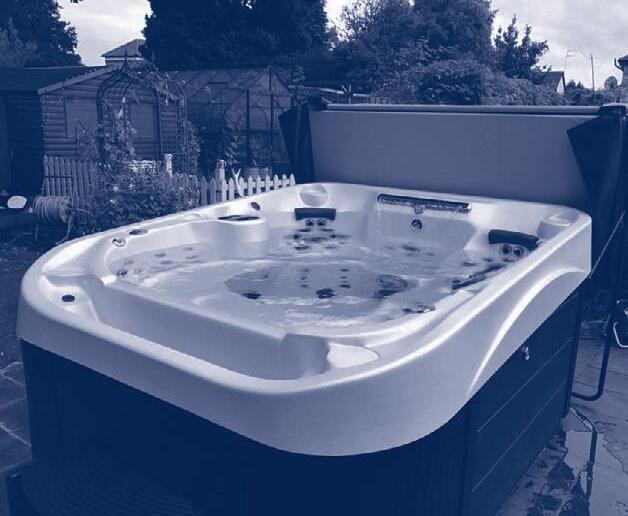
Supervision is a key element in getting maximum, safe enjoyment from your spa or hot tub. One individual must assume primary responsibility for supervising the spa or hot tub. Appoint a “designated child watcher.” The supervisor must study the contents of this booklet as well as any instructions from the spa or hot tub manufacturer and be thoroughly familiar with all facets of the safe operation and maintenance of the spa or hot tub. He or she will take responsibility for communicating safety information to all persons who enter the spa or hot tub area. It is a good idea to designate a back-up for times when the primary supervisor is unavailable.
The supervisor or “designated child watcher” is responsible for enforcing “house rules” for your spa or hot tub. Draw up these rules from information in this booklet and other safety and maintenance information provided by the manufacturer or dealer. These rules should cover such things as the length of time allowed for a soak, consumption of alcoholic beverages, maintenance, use of electrical appliances, and the handling of chemicals. Establish rules immediately. Write them in simple language and post them where they are easy to see—near the spa or hot tub. Use the safety information in this booklet to help develop your safety rules.
Don’t soak for longer than 15 minutes in 104° F (40°C) water. In lower temperatures (e.g., 98.6° F 37°C “normal” body temperature), most people can safely soak for longer periods.
These rules should be clearly communicated to and understood by all persons, young and old, who use your spa or hot tub. Most importantly, consistently enforce these rules. Never leave the spa or hot tub unsupervised. When supervision is not available, even for a moment, close the spa or hot tub.
It makes sense to pay special attention to educating children about safety precautions. Teach your children about equipment maintenance and proper upkeep of the spa or hot tub. As they get older, your children will learn from your example that they must respect the spa or hot tub and surrounding area and act responsibly.
It also makes sense for the supervisor and other responsible family members to be trained in artificial respiration and/or cardiopulmonary resuscitation (CPR). Instruction is available from local community organizations such as the American Red Cross.
Soaking in your spa or hot tub is relaxing, warm, and wonderful. The hot water soothes your body and rejuvenates your spirits. But that same hot water holds some potential dangers.
• Persons with heart disease, diabetes, high or low blood pressure, or any serious illness as well as pregnant women and persons with any doubt about sensitivity to higher temperatures, should not enter a spa or hot tub without prior consultation with their doctor.
• Before entering, look at the water in your spa or hot tub. If there is cloudiness or foaming, or if a “locker room” or strong chlorine smell is present, the water needs treatment. Soaking in such water greatly increases your chances of getting a skin rash (pseudomonas). Be sure to maintain the water properly. Ask your spa or hot tub professional for guidance.
• People with skin, ear, genital, or other body infections, open sores, or wounds should not use the spa or hot tub because of the possibility of spreading infection.
• Shower with soap and water before and after using the spa or hot tub. Showering before use washes away many of the common skin bacteria and removes lotions, deodorants, creams, etc. Perspiration and lotions will reduce the effectiveness of the disinfectant and lessen the ability of the filter to work efficiently.
• High water temperatures can elevate your body temperature and the temperature of internal organs beyond safe limits. (It’s almost like having a fever.) It is recommended that maximum water temperature never exceed 104° F (40° C).
• Soaking too long makes some people nauseated, dizzy, lightheaded, or faint. Don’t soak for more than 15 minutes at one sitting in 104° F (40° C) water. If you wish to soak for a longer period of time in high temperatures, leave the spa or hot tub after 15 minutes, and then cool down and return for another brief stay. In lower temperatures (e.g., 98.6° F, 37° C—normal body temperature), most people can comfortably and safely soak for longer periods at one sitting. If you have any questions about what’s right for you and your family, consult with your doctor.
• Never use the spa or hot tub when you are alone.
• Never use a spa or hot tub while using or after using alcohol. Alcohol acts to expand your blood vessels and increase your body temperature, much like soaking in hot water does. Alcohol in your bloodstream and soaking at the same time creates a combined effect that can be damaging. The body temperature may accelerate to dangerous levels quickly. The alcohol may cause nausea, dizziness, or lightheadedness. The ultimate danger of combined alcohol consumption and hot water soaking is drowning due to loss of consciousness, heart
attack, or injury due to passing out and falling.
• As with alcohol, the combined use of certain prescribed medicines and hot water soaking can be dangerous. Never use a spa or hot tub while using or after using narcotics or other drugs that may cause sleepiness or drowsiness or raise or lower blood pressure. With any drug or medication, consult with your doctor about potentially harmful effects from combined use of the drug and hot water soaking. Never use a spa or hot tub if you are under the influence of drugs.
• It is best not to soak immediately after eating a heavy meal.
• Keep an accurate thermometer in the spa or hot tub at all times to monitor the water temperature. Be sure you check the water temperature before entering and while in the spa or hot tub.
• Do not try to adjust or touch equipment such as pumps, heaters, or electrical appliances while you are in the spa or hot tub, or while standing in water, unless designed as such and recommended by the manufacturer.
• Enter the spa or hot tub slowly and cautiously. Be careful of your footing and allow your body to gradually get used to the water temperature. Leave slowly as well, because your leg muscles may be sufficiently relaxed to make you a bit unsteady and you may become lightheaded.
• Never allow children to use the spa or hot tub unsupervised. Children enjoy playing in water and may not understand the risks involved in overexposure. Discretion is advised in allowing children to use spas and hot tubs at all, since their young bodies may not adjust well to the high temperatures. If in doubt, check with your doctor for specific recommendations for your children given their age or other medical considerations.
• If children will be using your spa or hot tub, explain to them that they cannot under any circumstances dive or jump into it. While a spa or hot tub may seem deep and large to a child, it is not designed for jumping, diving, or underwater swimming. Serious injury can result if any of these are attempted.
Your spa or hot tub is an excellent place to relax your cares away. It is also good for “warming up” with simple flexibility exercises. These exercises are easier in water because water effectively lessens the pull of gravity on your body. Be aware of the weakening effect of hot water and don’t overdo it. If you wish to exercise in your spa or hot tub, lower the temperature to 80° F, 26.6°C.
Before beginning any exercise program, consult your physician. Use good judgment in monitoring your own exercise and supervising others who exercise in your spa or hot tub.
Your spa or hot tub can be the focal point for happy entertaining. Plan ahead to prevent accidents and injuries to make your entertaining truly enjoyable.
• Your family and guests are likely to be intrigued by your new spa or hot tub. Before they go in—and especially if it is their first time in a hot water facility—explain the safety precautions. Point out how to enter it and where the seats are located.
• Food and drink play an important part in your entertaining. Establish an area away from the spa or hot tub for refreshments to prevent accidental slips or falls caused by spills near the spa or tub or on the deck and to prevent debris from falling into the water.
• More likely than not, your guests will be barefooted while near the spa or hot tub. Use only unbreakable dishes, beverage containers, and utensils. Never use glass anywhere near the spa or hot tub. Broken glass is invisible in water and extremely difficult to get out of the support system.
• Keep electrical appliances a significant distance from the spa or hot tub. Don’t use extension cords. Use a ground fault circuit interrupter (GFCI) on any appliance that must be near the spa or hot tub. Where possible, use battery-operated appliances around the spa or hot tub.
Electrocution from appliances and telephones in contact with water is a real danger.
• If you use your spa or hot tub at night, provide adequate lighting around the facility.
• Alcohol consumption and spa and hot tub activities do not mix. Alcohol acts as a depressant. It can “slow you down” because it affects the part of the brain that exercises restraint and control. Alcohol can instill false courage or “bravado,” leading people to try things they normally would not. Therefore, persons who have been drinking alcohol should not be allowed in the spa or hot tub and should be carefully supervised in the surrounding area.
• Prescription and over-the-counter medicines sometimes cause drowsiness or have other side effects. If you are taking prescription medicine, check with your doctor before using the spa or hot tub.
• Never allow anyone who has been drinking alcohol or using drugs to go into the spa or hot tub. There is a great possibility that the person could drown or be seriously injured.
• Do not allow running on the deck or area around the spa or hot tub, as injuries may occur from slips and falls.
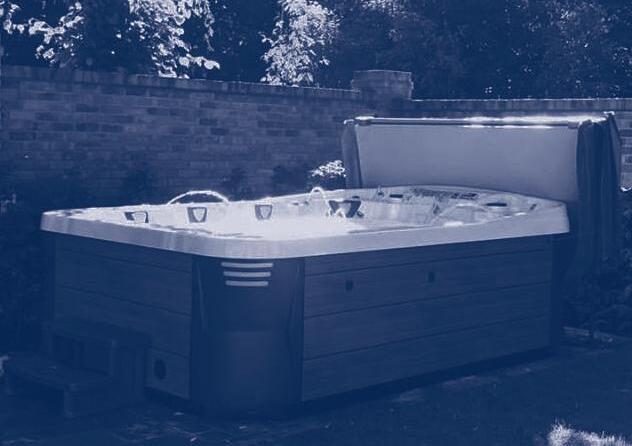
• If your spa or hot tub is outdoors, stay out of it during lightning or rainstorms, because of the possibility of electrocution from the lightning hitting the water.
• You have the bottom-line responsibility in entertaining. Use good judgment to help protect yourself, your family, and guests. If you are unsure of any person’s condition or abilities, prohibit them from using your spa or hot tub. Remember, you are in charge of your facility.
Many people believe they have to drink a lot to be affected by alcohol. Studies show this just isn’t true. The alcohol in just one or two beers can affect your judgment, even though you don’t feel or appear to be “drunk.’’ Even a small amount of alcohol can slow your reflexes. This is especially true if you are tired or on medication such as cold or allergy remedies or prescription drugs.
Entertaining can be both fun and safe with a little planning and good judgment. Use only unbreakable dishes, beverage containers, and utensils. And never allow anyone to soak if under the influence of alcohol or drugs.
Keeping your spa or hot tub in top operating form is very important to help ensure the safety of those who use it and to protect your investment. Carefully read, understand, and follow the operating and maintenance instructions supplied by the spa or hot tub manufacturer and the manufacturers of associated products (e.g., chemicals). This booklet is not intended to replace information supplied by manufacturers. A good general rule is to visually inspect your spa or hot tub area and equipment regularly. If anything looks broken, worn, corroded, frayed, or not right, contact your spa or hot tub professional for advice and repairs. A simple repair or replacement may prevent an injury or save a life. It also may prevent more serious or expensive equipment problems.
There are many products that you will buy to complement your spa or hot tub. Be aware of all precautions related to the installation, use, and maintenance of these products. Follow the manufacturers’ instructions for use.
(SOLAR AND INSULATING ONLY)
• Spa covers are a real benefit to you in terms of saving energy and keeping debris out of the spa. For safe installation, use, and maintenance of these covers, carefully read and follow the directions of the manufacturer. These are not safety covers. They do not prevent drowning or entry into the spa or hot tub. Avoid the possibility of someone being trapped under the spa cover by completely removing the cover before use. Safety spa covers must be in compliance with ASTM F1346-96 Standard Performance Specifications for Safety Covers and Labeling Requirements for All Covers for Swimming Pools, Spas, and Hot Tubs. For more information, see Drowning Prevention Tips.
• Be sure to test the temperature of the water right after removing the cover. A cover on a spa or hot tub can greatly increase the temperature of the water.
• Forbid children from playing on top of the spa or hot tub cover.
• Most spa and hot tub covers aren’t designed to support the weight of a child. Be especially alert if you use a lightweight, floating cover.
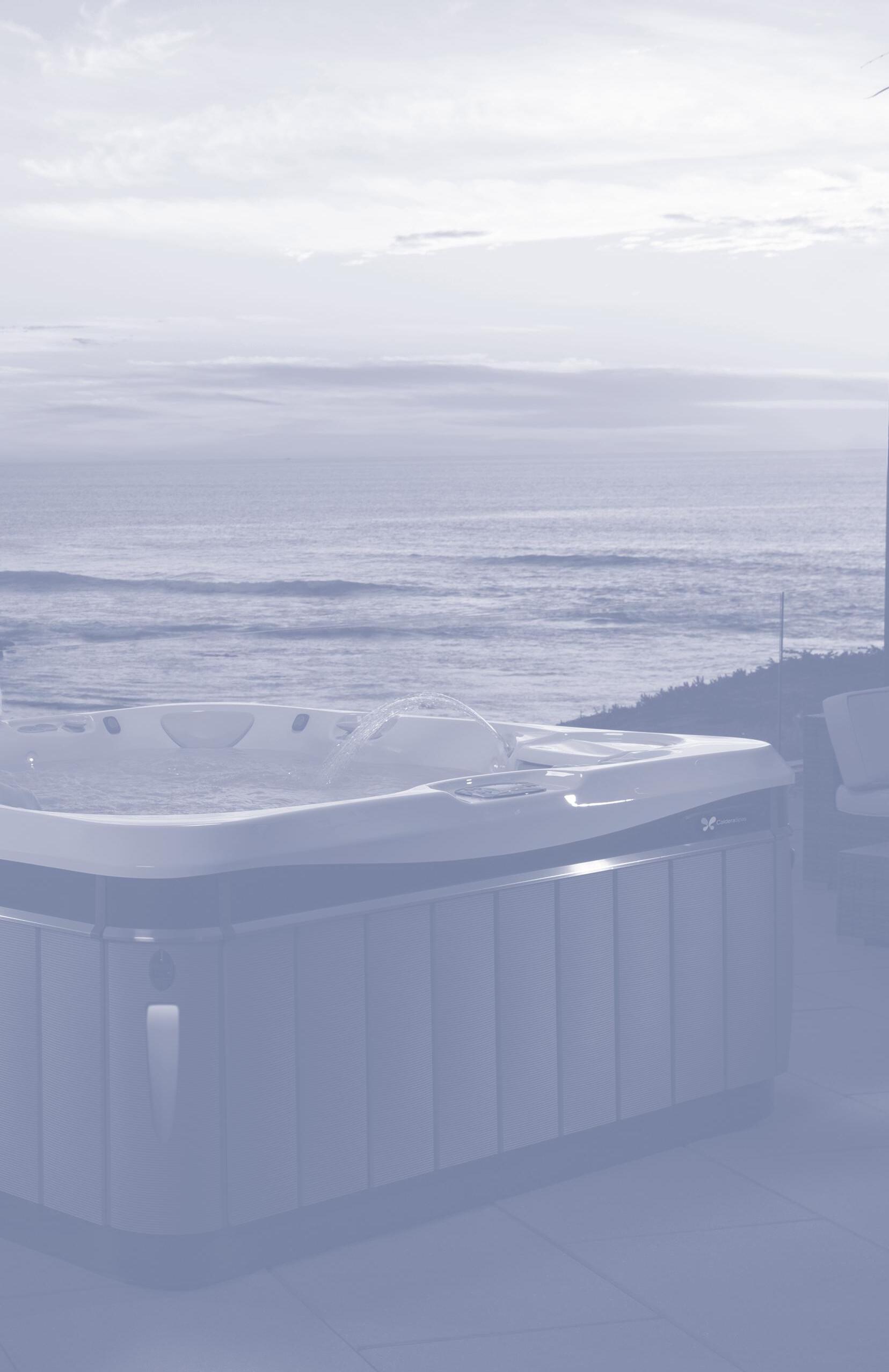 Caldera Spas
Caldera Spas
• A deck or patio around your spa or hot tub can add real beauty and enjoyment. Be sure your deck or patio has a slip resistant surface with adequate drainage. Overall, slips and falls constitute the greatest number of accidents involving water facilities. Keep the deck or patio clean and clear of all debris. Check periodically for any signs of wear and tear, which may make these surfaces hazardous.
• Insist that there be no running, pushing, or roughhousing near the spa or hot tub.
• Spas and hot tubs are attractive to children, and children must be kept away from them in the absence of adequate adult supervision. Layers of protection, such as a fence, wall, or natural barrier of sufficient height, can help keep out children under the age of five and other unauthorized users. All gates or doors giving access to the spa or hot tub should have a self-closing and self-latching mechanism that pro-
tects against unauthorized entry and use. (The inside latch should be above the reach of toddlers or young children.) Check with your state, providence and local government to learn their specific legal requirements concerning barriers and other layers of protection around spas or hot tubs. If none exist, contact the PHTA for the ANSI approved Model Barrier Code (ANSI/APSP/ICC-8 2005 (R2013) Model Barrier Code for Residential Swimming Pools, Spas and Hot Tubs) and the PHTA brochure “Layers of Protection.” You cannot be too cautious. If your spa or hot tub is indoors, lock the door to the room or have a cover that locks to keep out children and other unauthorized users.
• Alarms similar to burglar alarms may be placed on the doors to alert caretakers of unauthorized entry to the spa or hot tub area. All fences can be climbed by children given sufficient time. Do not assume that your spa or hot tub is safe from entry because you have a fence. A fence may lull you into a false sense of security. Only competent, constant adult supervision can prevent drowning accidents. All layers of protection must be kept in good working order at all times.
Layers of protection such as a fence, wall, or natural barrier around your outdoor spa or hot tub can help keep out children under the age of five and all other unauthorized users. If your spa or hot tub is indoors, lock the door to the room or have a locking safety cover in place when the facility is not in use.
• Handrails, steps, and ladders must be securely mounted. Routinely inspect them to ensure that they are firmly in place. Check for broken treads, sharp edges, and loose bolts and nuts. Keep handrails, steps, and ladders unobstructed for use. Don’t use them for hanging towels or other items.
• If your spa or hot tub has a removable ladder for entry, remember to remove it when the facility is not to be used or when no supervision is available.
• To safely use electricity in and around your spa or hot tub, you must have equipment expressly designed for this purpose. Consult with a licensed electrician for help in correctly equipping your spa or hot tub area for electricity. Ask the licensed electrician to be aware of any local electrical codes that apply in your area. Ensure that your spa or hot tub and its equipment are designed and installed to conform to the National Electrical Code for spas/hot tubs and related equipment. Electrical work is not for do-it-yourselfers or other amateurs. Contract with a licensed electrician to make sure that all of your outside electrical lines (not just those for the spa or hot tub and its equipment and accessories, but also for other appliances used outside as well) are all protected against by ground fault circuit interrupters
(GFCIs), which are designed to protect against the hazards of electrical shock.
• If you are installing your own spa or hot tub, it is your responsibility to make certain that all work performed complies with the National Electrical Code, Canadian Electrical Code and all other applicable codes and regulations.
• Your spa or hot tub’s inlet and outlet fittings, grates and skimmer, and main drain covers must be designed to prevent entrapment. They must comply with the latest edition of ANSI/APSP-16 Suction Fittings for Use in Swimming Pools, Wading Pools, Spas, and Hot Tubs. They also must be kept in good repair and must be secured in such a manner that they can’t be removed without the use of tools. If broken suction, call for service immediately and do not use hot tub.
Keep grates and drain covers in good repair and secured in place. Alert your family and guests to stay away from these devices, as the suction from drain outlets is strong enough to cause entrapment of hair or body parts, which can cause drowning.
Avoid Evisceration
Avoid Drain Covers
Avoid Body Entrapment
Avoid Finger Entrapment
Avoid Hair Entanglement
• Tell children, particularly, that these devices are not toys. Instruct all users not to stick their fingers, toes, or body into them. Entrapment and drowning can occur.
• Anyone with long hair should be cautioned not to get their hair near a spa or hot tub outlet. The suction can cause hair or body entrapment and drowning. Keep long hair away from the suction fitting drain cover/grate. If you have long hair, pin it up or wear a bathing cap. A drain without a cover/grate can have a pull of approximately 700 lbs. (317.5 Kg)—enough to hold an adult under water! Never allow a child to play in a way that could permit the child’s hair to come near the drain cover.
• Never play or swim near drains or suction fittings. Your body or hair may be trapped causing permanent injury or drowning.
• Never enter the pool or spa if a suction fitting or the drain cover is loose, broken, or missing.
• Immediately notify the pool/spa owner or operator if you find the drain cover loose, broken, or missing.
• Most filter systems can maintain internal pressure even when shut off. Never perform work on your filter equipment without turning
the entire system off and bleeding off the internal pressure. When you restart your filter after maintenance or when you are turning on your equipment to put your spa or hot tub in operation, always bleed off the air in your filter tank, and even then, stand back. Serious bodily injury can occur if the top of the filter separates from the bottom with sudden force because of some problem or error on your part. Always securely clamp the top and bottom of a two-piece filter in accordance with the manufacturer’s specifications. Serious bodily injury can result if the top of a two-piece filter is blown off by air pressure that is allowed to accumulate in the tank. If you are at all unsure of how to proceed, call your spa or hot tub professional.
• Carefully follow the manufacturer’s instructions for maintaining, servicing, or repairing a filter or separation tank. Regularly inspect this equipment while it is turned off, with the idea of replacing worn or damaged parts. Never inspect filtration equipment without being sure that the internal pressure has been bled off through the manual valve provided for that purpose. Refer to manufacturer’s instructions.
• Filtration equipment requires care in handling as well as regular maintenance and replacement parts to function properly and efficiently.
• Heaters should be installed according to the manufacturer’s instructions and should be in accordance with state or local government regulations or fire codes. Heaters can be dangerously hot to the touch. Do not place or drape any flammable material (e.g., a towel or tee shirt) on top of or near a heater.
• If you wish to use a propane heater, consult local regulations for the safe use, hook-up, and storage of propane products. These regulations may be under the control of local fire or municipal departments, county building codes, etc. Learn of your local regulations and follow them.
• With propane or natural gas heaters, when lighting or relighting the pilot or turning the heater on or off, refer to the manufacturer’s instructions on the name and rating plate. This plate is attached to the heater inside the control compartment. Following these instructions will prevent injuries. Gas is explosive and flammable.
• IMPORTANT SAFETY NOTE: Fossil fuel appliances, like spa heaters, produce poisonous carbon monoxide gas as a byproduct of combustion. Proper venting of exhaust gases and the correct sizing of gas meters, gas supply piping, make-up air intakes, etc. are critical installation considerations in preventing potential carbon monoxide gas poisoning or loss of life.
• Keep the spa or hot tub clean and clear of debris. Keep the water clean so that you can see the bottom when entering (or before turning on the water jets).
• Use an EPA-registered sanitizer and follow the use directions on the label to protect against the spread of infection. Do not assume that because the water is clear it has been properly sanitized. Periodically check the sanitizer levels to ensure they are maintained according to the label directions.
• Keep the spa or hot tub filled to its proper level. Periodically check the water levels.
• Change the water on a schedule recommended by your spa or hot tub professional.
• Have a complete first aid kit near the facility and make sure that someone knows how to use the contents properly. Post a list of emergency telephone numbers by the phone nearest the spa or hot tub (or keep a cordless phone nearby). This list should contain the names and telephone numbers of the closest physician, ambulance service, hospital and police, fire, or rescue unit. It is a good idea to include your home address on this list. In an emergency, it’s not uncommon for someone to panic and forget his or her own address.
• At least one responsible person should be trained in artificial respiration and/or cardiopulmonary resuscitation (CPR). Such training is available from local organizations such as the American Red Cross or the Red Cross of Canada.
In addition to all of the guidelines for spas and hot tubs, there are some special conditions for portable spas, which plug into existing electrical outlets.
• Have a licensed electrician verify that the amperage capacity of the circuit into which the portable spa is connected, exceeds the amperage rating of the spa equipment. Most portable spas require a 20-amp circuit with no other appliances operating from the same circuit as the spa.
• Do not assume that the wall outlet for the portable spa is properly grounded. Have a licensed electrician check for the quality of the ground in the circuit. When used in accordance with the ground fault circuit interrupter (GFCI), this ground provides the only safety measure in the event of electrical malfunction of the spa equipment or connecting cord.
• Have a licensed electrician verify that all portable spa equipment is wired through a GFCI, and test the GFCI regularly to ensure proper operation in case of electrical malfunction.
• Do not use extension cords.
• Do not use plug receptacles that could be exposed to weather or moisture.
The chemicals needed for your spa or hot tub help make it clean, safe, and more attractive to use. But, remember that these chemicals are potentially dangerous and may present some hazards if not used properly. Carefully follow the manufacturer’s instructions for the use and storage of chemicals. In general, here are some tips for chemical use and storage:
• Before using chemicals, read the labels and directions carefully. Follow label use instructions.
• Keep all chemicals out of the reach of children.
• Chemical reagents for test kits should be replaced each year.
• Keep the original lids on all chemical containers and make sure the lids are tightly closed when not in use.
• Do not stack different chemicals on top of one another.
• Store your spa or hot tub chemicals in a clean, cool, dry, wellventilated area, preferably off the floor, to prevent contamination from other materials. Never store chemicals near the spa or hot tub heater. Always keep them away from chemicals and equipment used for garden and lawn maintenance. Keep acids away from other chemicals.
• Keep liquid chemicals away from dry chemicals. Physically separate different forms of chemicals. Chemicals that are labeled as “oxidizers” should be kept apart from other chemicals.
Don’t guess with chemicals. Before using, read the labels and follow directions carefully. Be sure to store them properly.
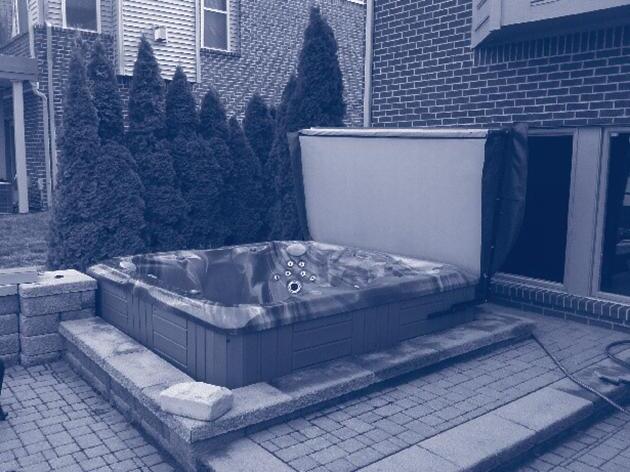
• Do not store your spa or hot tub chemicals where other flammable items may mix with them. For example, a mixture of these chemicals and fertilizer can cause a fire or explosion.
• Wash your hands thoroughly after using chemicals.
• Never mix two chemicals together. Use a clean scoop for each chemical, and never combine material from “old” and “new” containers.
• Always add chemicals to water. Never add water to chemicals.
• Always add the chemicals directly to the spa or hot tub water, either in a suitable feeder, distributed across the surface of the water, or diluted and poured into the water. Follow label use instructions.
• When preparing water solutions for feeder application, pour the chemical slowly into the appropriate amount of water, stirring constantly to provide mixing and dilutions.
• Never add chemicals to the spa or hot tub water while people are using the facility.
• Carefully clean up any spilled chemicals with large amounts of water, to dilute and wash away the chemicals. Check with local authorities before sending disinfectants and pH adjustment chemicals to the sewer as waste.
•Wash out empty chemical containers before disposal to eliminate danger of fire, explosion, or poisoning.
• Test the water in your spa or hot tub with a reliable test kit on a schedule recommended by your spa or hot tub professional. Add the necessary chemicals according to the test results and the manufacturer’s instructions. In the hot water environments of spas and hot tubs, disinfectants may rapidly break up and spread out, requiring more frequent water testing. (The higher temperatures deplete the chemicals faster.) Follow your manufacturer’s instructions in this regard. Also, the more people who use the facility, the more frequently you should test the water.
• Do not inhale dust or fumes from any chemicals. If necessary, use proper protective devices for breathing, handling, and eye protection. Promptly wash off any residues that get on your skin.
• Never reuse old chemical containers.
• If you have any questions regarding safe handling, storage, or use of spa or hot tub chemicals, contact the manufacturers. The phone number and website of the chemical manufacturing company is usually on the label of the product.
Working with electricity is usually a job best left to the experts. Don’t take chances.
Working with electricity is a job best left to the experts. Here are some general safety rules and precautions for electrical maintenance:
• Before working with any electrical equipment, make sure the electricity is turned off at the circuit breaker or fuse box.
• Make sure that the electrical outlets near the spa or hot tub are protected by ground fault circuit interrupters (GFCIs). GFCIs are designed to prevent electrical shock. They are a kind of “fail safe” device that can shut off electrical current in fractions of seconds. Ask a licensed electrician for more details.
• If you have any frayed cords, loose connections, sparking or arcing, turn off the power at the circuit breaker and call a licensed electrician.
• Have a licensed electrician inspect and test all equipment prior to initial operation and before each season.
• Never replace bulbs for underwater lights yourself. Get an expert to do this for you.
• Do not let water accumulate on the floor or deck areas where electrical switches are located.
• Do not stand in water while operating electrical components.
For your protection, only spa or hot tub professionals, licensed electricians, builders, carpenters or other appropriate experts should perform the following services:
• Selection, installation, and servicing of electrical equipment, heaters, filters, and separation tanks; covers (including solar); solar systems; plumbing and related devices.
• Building of walls, fences, and other barriers as layers of protection to children and other unauthorized users.
• Annual inspection of all spa and hot tub equipment and accessories.
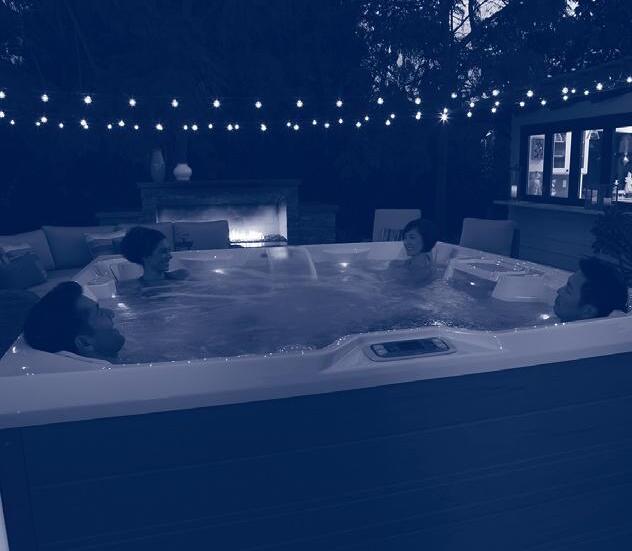
The popularity of swimming instruction for preschoolers has increased dramatically over the last few years. “Water adjustment” or “water proofing” classes have attempted to create acceptance of water by young children, provide young children with “survival” types of reactions to remain afloat after accidental entrance into water, develop coordination, and provide exercise. Many professionals, however, warn that these lessons may provide a false sense of security to a child’s family and not actually prepare a child for surviving a true emergency.
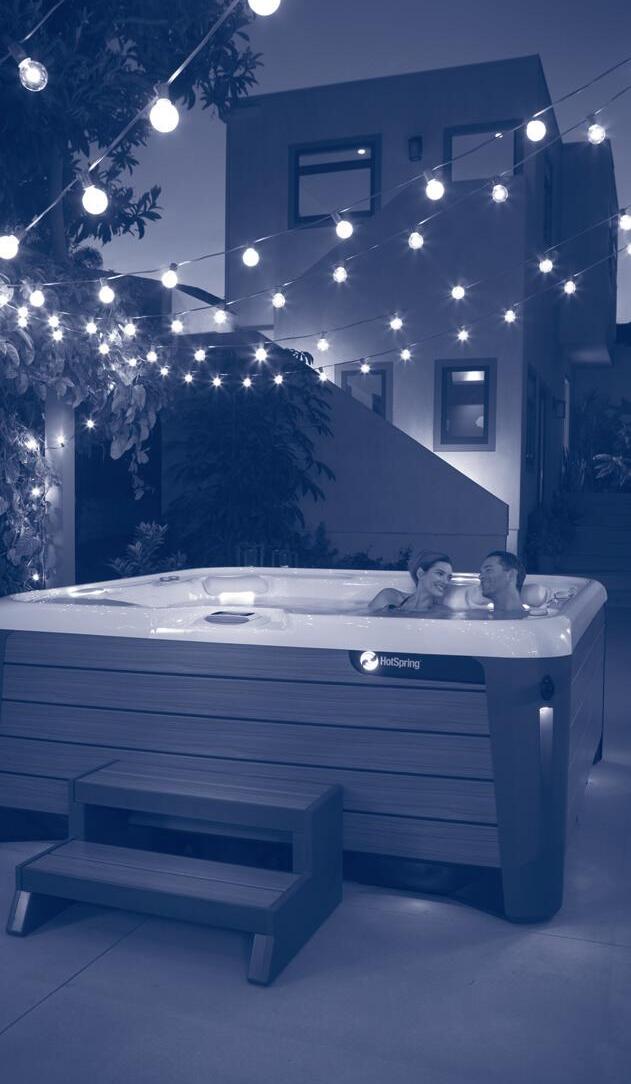
The American Academy of Pediatrics recommends:
1. If parents wish to enroll infants in a water adjustment and swimming program, it should be on a one-to-one basis with the parent or a responsible adult. Total submersion should be prohibited. Organized group swimming instruction is not recommended for children under three years of age.
2. Instruction should be carried out by trained instructors in properly maintained pools.
3. Infants with known medical problems should receive clearance from their physicians.
4. Efforts to reduce the number of drownings among children should concentrate on two methods of proven effectiveness:
A. The assurance of constant, competent adult supervision for children or non-swimmers in swimming areas.
B. The use of personal flotation devices for all non-swimmers close to bodies of water or in boats.
5. People who own pools or spas should be properly trained in cardiopulmonary resuscitation (CPR).
The Pool & Hot Tub Alliance (PHTA) offers many publications and materials to help you enjoy your spa or hot tub. They also offer informative materials on inground and aboveground pools.
CONTACT: The Pool & Hot Tub Alliance 2111
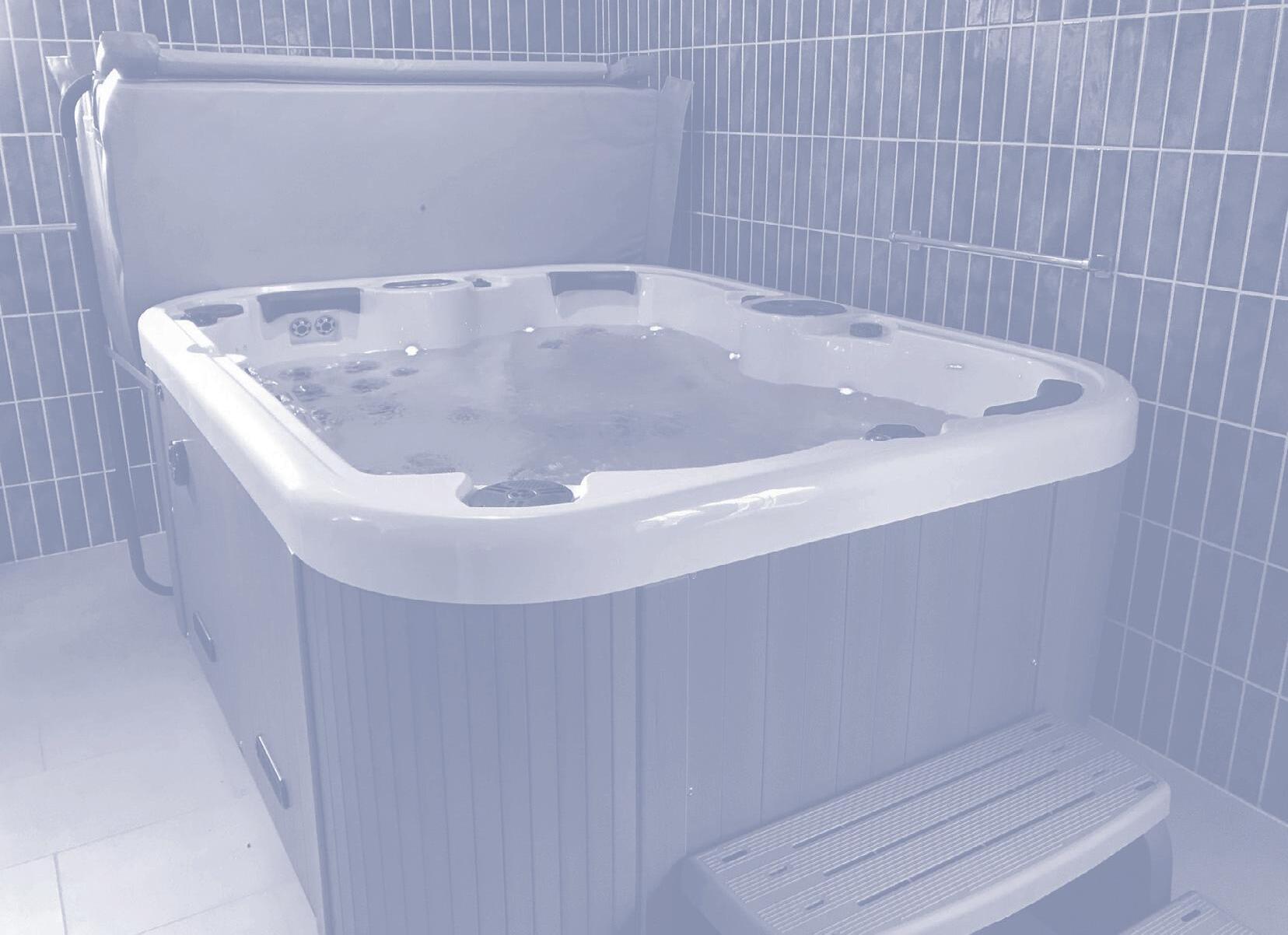
It is your responsibility to enforce the rules of safety. A good exercise would be to have each of your children and the other spa/hot tub users who reside with you read this booklet and sign in one of the spaces indicated below. This will help you enforce the rules since you can always refer back to their promise reflected by their signature.
We the undersigned have read this safety booklet. We understand what it says and we promise to follow the rules of safety and to use our common sense.
PARENTS: The life and health of you and your children as well as your friends and neighbors are important. Please practice safety and supervise your spa or hot tub.
2111 Eisenhower Avenue, Suite 500
Alexandria VA 22314
PHTA.org
5 MacDougall Drive Brampton, Ontario, Canada L6S 3P3 poolcouncil.ca
The Pool & Hot Tub Alliance (PHTA) is the world’s oldest and largest association representing swimming pool, hot tub, and spa manufacturers, distributors, manufacturers’ agents, designers, builders, installers, suppliers, retailers, and service professionals. Dedicated to the growth and development of its members’ businesses and to promoting the enjoyment and safety of pools and spas, PHTA offers a range of services, from professional development to advancing key legislation and regulation at the federal and local levels, to consumer outreach and public safety. PHTA is the only industry organization recognized by the American National Standards Institute to develop and promote national consensus standards for pools, hot tubs, and spas. For more information, visit PHTA.org.
The Pool & Hot Tub Council of Canada is an association representing the interests of the top companies that make up the pool and spa industry in Canada. Abiding by the Code of Ethics, Member companies perform to the highest standards of workmanship and service. The Pool & Hot Tub Council of Canada is a national, notfor-profit association of companies, organizations and individuals involved in the aquatic leisure industry. Members include builders and contractors, retailers, service providers, manufacturers and distributors of swimming pools, hot tubs and water feature products. Members also include public pool operators and related safety organizations. Our members promote the safe enjoyment of pools and hot tubs by sharing their knowledge with others. We encourage only the highest standards of quality and professionalism so that all Canadians can take pleasure from our products and services.
There is no substitute for constant, competent adult supervision in the spa or hot tub environment. Lives depend on you!